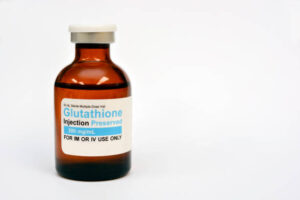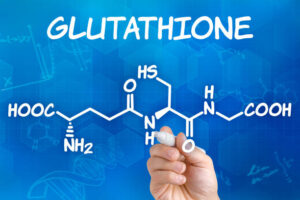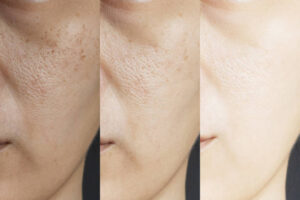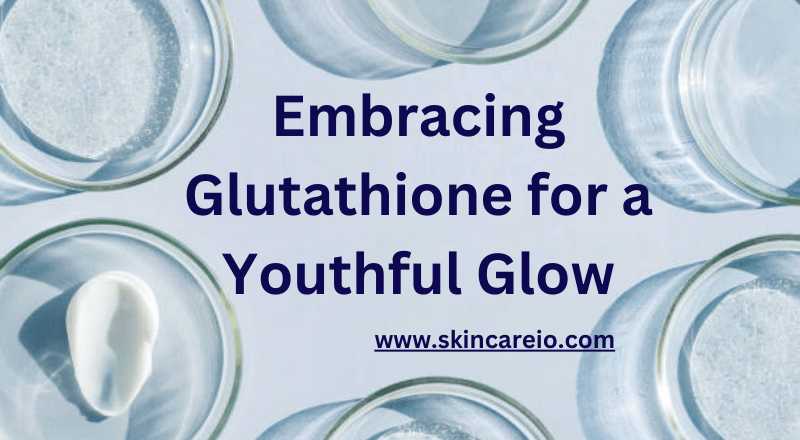Glutathione, often referred to as the “master antioxidant,” is a naturally occurring molecule found in every cell of the human body. It plays a crucial role in various physiological processes, including detoxification, immune support, and the maintenance of overall health. In recent years, glutathione has gained significant attention in the world of skincare due to its potential benefits for achieving healthy, radiant skin. This versatile antioxidant offers a wide range of advantages when incorporated into your skincare routine, making it a valuable addition for individuals seeking to improve the appearance and health of their skin.

The Science Behind Glutathione
Before delving into the specific uses and benefits of glutathione for the skin, it’s essential to understand the science behind this remarkable molecule. Glutathione is a tripeptide composed of three amino acids: cysteine, glutamic acid, and glycine. Its primary function within the body is to combat oxidative stress by neutralizing harmful molecules called free radicals. Oxidative stress occurs when there is an imbalance between free radicals and antioxidants in the body, leading to cellular damage, inflammation, and premature aging.
Read Also: Tranexamic Acid: A Skin Savior
In addition to its antioxidant properties, glutathione is involved in various critical processes:
Detoxification: Glutathione plays a central role in the body’s detoxification pathways, helping to remove toxins, heavy metals, and harmful substances.

Immune Support: It supports the immune system by aiding the production and function of immune cells.
A KEY TO EXTRAORDINARY SKIN RADIANCE!
Glutathione DNA Synthesis and Repair:
Glutathione is essential for the synthesis and repair of DNA, contributing to the overall health and longevity of cells.
Cellular Energy: It assists in the production of adenosine triphosphate (ATP), the energy currency of cells, which is vital for their proper functioning.
Collagen Production:
Glutathione contributes to collagen production, an essential protein for maintaining skin elasticity and youthful appearance.
Benefits of Glutathione for the Skin
An antioxidant, glutathione plays a critical role in neutralizing free radicals that damage skin cells and accelerate the aging process. By reducing oxidative stress, it helps maintain skin health and radiance. Glutathione is renowned for its skin-brightening properties. It inhibits the enzyme responsible for melanin production, the pigment responsible for skin color. By reducing melanin production, glutathione can effectively lighten dark spots, hyperpigmentation, and uneven skin tone, leading to a brighter complexion. Glutathione’s ability to interfere with the enzymatic process involved in melanin production makes it effective in reducing the appearance of hyperpigmentation conditions such as melasma, age spots, and post-inflammatory hyperpigmentation (PIH). By protecting skin cells from oxidative stress and supporting collagen production, glutathione helps reduce the appearance of fine lines, wrinkles, and other signs of aging. This leads to a more youthful and radiant complexion.

Glutathione’s anti-inflammatory properties can help reduce redness and inflammation associated with acne. It also aids in minimizing acne scars and blemishes, contributing to clearer skin. By assisting in the body’s detoxification processes, glutathione can promote clearer and healthier skin by eliminating toxins and pollutants that can contribute to skin problems. Glutathione supports the skin’s natural healing and repair mechanisms, making it beneficial for the recovery of damaged skin, including wounds, cuts, and burns. While not a replacement for sunscreen, glutathione can provide some protection against UV radiation by neutralizing free radicals generated by sun exposure. It complements the sun protection provided by sunscreen.
Read Also: Discover the Magic of Hyaluronic Acid
Forms of Glutathione for Skin Use
Glutathione can be used for skincare benefits in various forms, including:
Glutathione is a key ingredient in many skincare products, such as creams, serums, and masks. When applied topically, it can provide targeted benefits to the skin, including skin brightening and the reduction of hyperpigmentation. Glutathione supplements, available in capsule or tablet form, are taken orally. These supplements are believed to enhance the body’s natural production of glutathione, potentially leading to skin benefits from within.
Glutathione injections are administered by healthcare professionals through intravenous (IV) or intramuscular (IM) routes. These injections can deliver a higher concentration of glutathione directly into the bloodstream, potentially offering more immediate and noticeable results for skin lightening. Liposomal formulations of glutathione are designed to improve its absorption by encapsulating it in lipid molecules. This may enhance its bioavailability when taken as an oral supplement.

Potential Side Effects and Considerations
While glutathione is generally considered safe, there are some important considerations to keep in mind: Some individuals may experience skin sensitivity, itching, or a rash when using topical glutathione products. If you develop any adverse reactions, discontinue use and consult a dermatologist. The safety and effectiveness of oral glutathione supplements for skin lightening are still a topic of debate in the medical and scientific communities. Additionally, the body’s ability to absorb glutathione orally is limited, as it is broken down in the digestive system. Some individuals may experience gastrointestinal discomfort or other side effects from oral supplementation. Glutathione injections should only be administered by healthcare professionals. Side effects may include pain at the injection site, bruising, and, in rare cases, more severe complications. It’s essential to discuss the potential risks and benefits with a medical professional before considering injections. Before using glutathione for skin benefits, it’s advisable to consult a healthcare provider or dermatologist.
